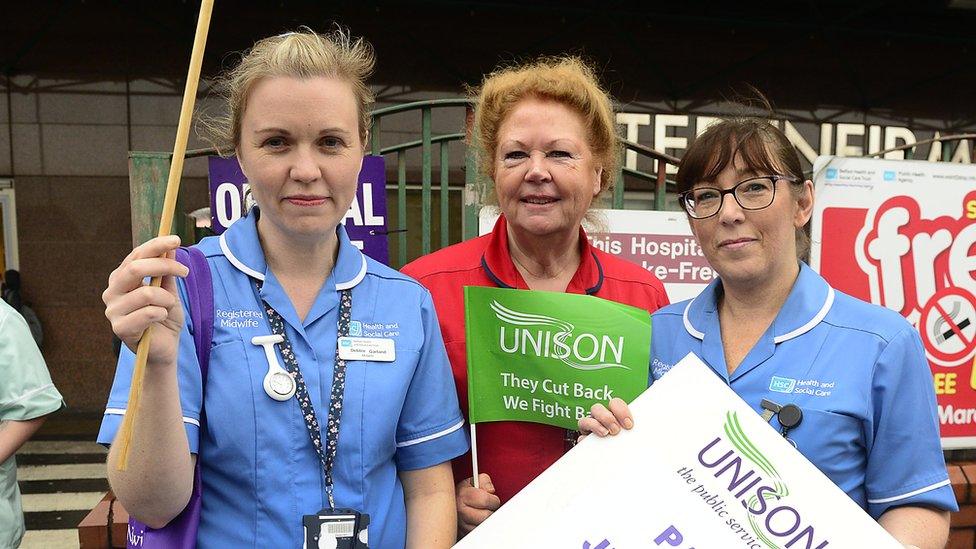Health strike: Fresh pay offer rejected by unions
- Published
"That was a political, not a negotiating meeting" - unions react after meeting with the secretary of state
A new pay offer made to health workers in Northern Ireland amid ongoing industrial action has been rejected.
Northern Ireland Secretary Julian Smith said there had been positive discussions and an "improved offer" from the Department of Health.
However, Anne Speed, Unison, said it fell short of what they had asked for and industrial action would continue.
Richard Pengelly of the Department of Health said he was desperately disappointed the offer was turned down.
Health workers across Northern Ireland are taking industrial action in protest at pay and staffing levels which they have said are "unsafe".
Full details of the cancellations and advice for patients can be found on the Health and Social Care Board website, external.
What did the unions say?
Unions have been taking part in fresh talks with Stormont's health department in a bid to end workers' industrial action.
Afterwards, Ms Speed made a statement on behalf of the unions involved, saying: "The department has presented a new position, trade unions have jointly agreed this remains insufficient and falls short of our members' requirements and mandate that they have given us.
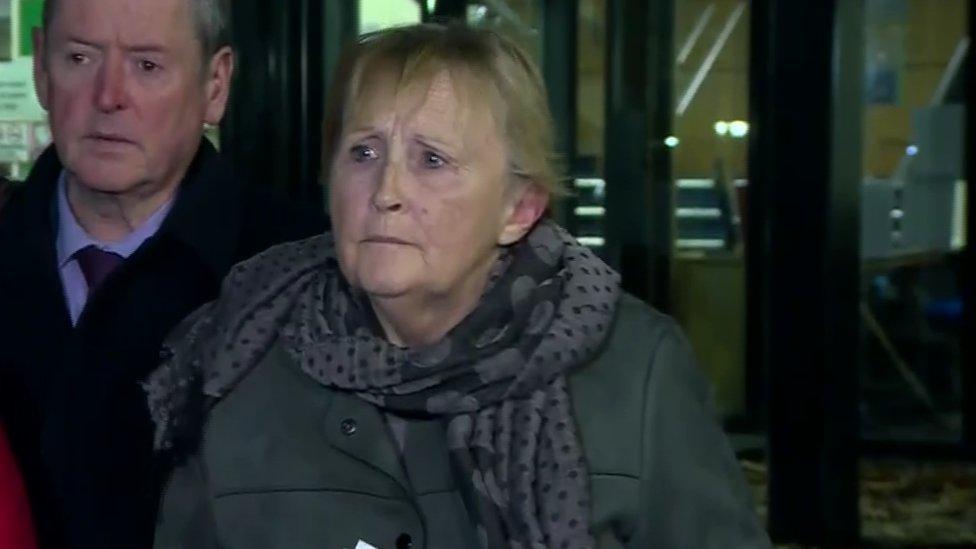
Anne Speed said the offer fell short of what they had asked for
"Industrial action continues and joint planned trade union action remains in place for 18 December."
Later, she added: "It is now clear that neither the Department of Health nor the secretary of state has acted in good faith today. Our worst fears have been realised.
"They are using the health service, health workers and patients alike as bargaining chips to force the return of Stormont."
Pat Cullen, the director of the Royal College of Nursing in Northern Ireland, said: "It is clear that Department of Health officials are still incapable of grasping either the severity of the crisis in our health service or the determination of nurses and other health staff to secure safe staffing and pay equality.
"Nurses are no longer prepared to listen to the same excuses from the Department of Health about budgets and/or not having the ministerial authority to deliver an acceptable pay award even if the money were available.
"Our health service is collapsing as we speak."
A limited number of outpatient appointments went ahead in hospitals across Belfast on Thursday.
It follows days of disruption during which 10,000 outpatient appointments and surgeries were cancelled.
How did the Department of Health respond?
Mr Pengelly, permanent secretary at the Department of Health, said over the last 24 hours colleagues in the Department of Finance had made more money available.
"We responded immediately by making the offer that unions had previously indicated would be sufficient to allow suspension of activities," he said.
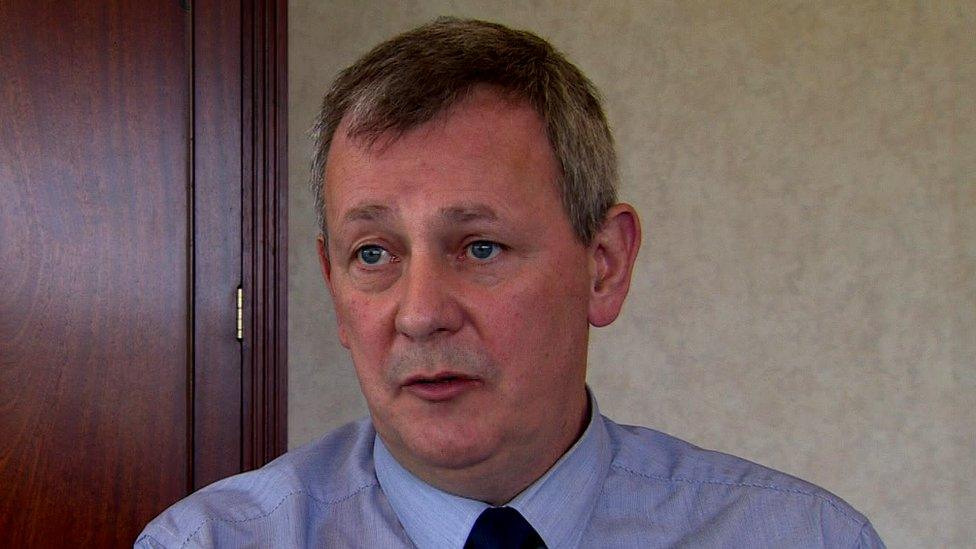
Richard Pengelly said he was desperately disappointed the pay offer was rejected
"The offer last week of 2.1% has been increased by £28m to make it a 3.1% increase in the pay bill.
"I have gone to the limit of my authority. The only thing remaining for me is to seek to overturn a decision taken by a previous democratically elected minister - I don't think it's appropriate that a civil servant overturns ministerial decisions."
Where did the extra money come from?
The Department of Finance said the January monitoring round process is currently under way, during which government departments declare reduced requirements and surrender any funding no longer required so it can be reallocated.
It said funding no longer required was given up by a number of departments on Wednesday as part of that process.
"Given the current pressures and extenuating circumstances, the Department of Finance has taken the unprecedented step to expedite the reallocation of £28m of this money to the Department of Health for immediate use," the department said.
Series of meetings
Secretary of state Mr Smith met members of the Royal College of Nursing (RCN), Unite and Unison on Thursday afternoon.
Patricia McKeown, Unison's regional secretary, said the meeting had been positive and she expected there would be "movement" as a result.
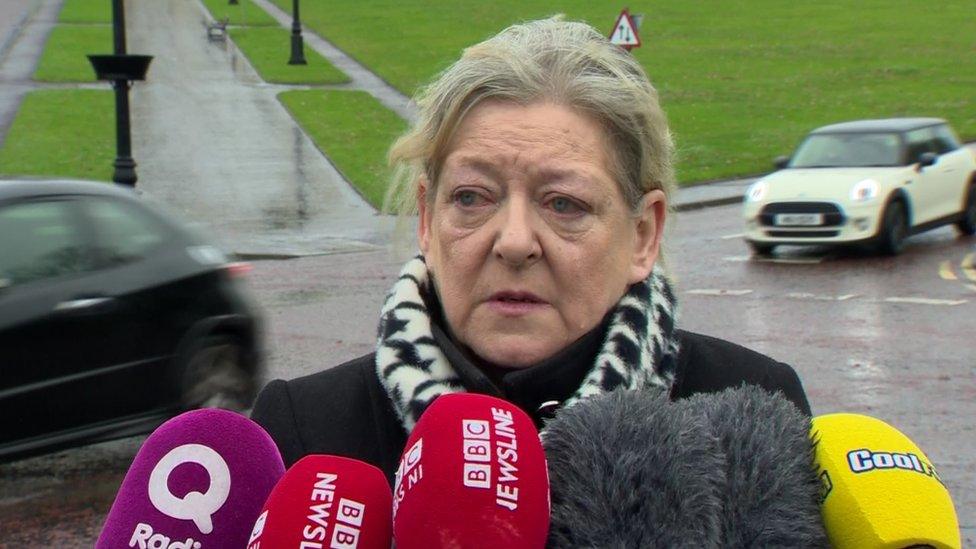
Unison's Patricia McKeown says she expected "movement" after meeting Julian Smith
Earlier, Mr Smith said the situation in the health service was unacceptable.
"I am extremely sorry this is affecting patients, families and workers," he said.
"We need to come together now to try to resolve this to make sure the impacts don't get worse - I will do whatever I can to move things forward."
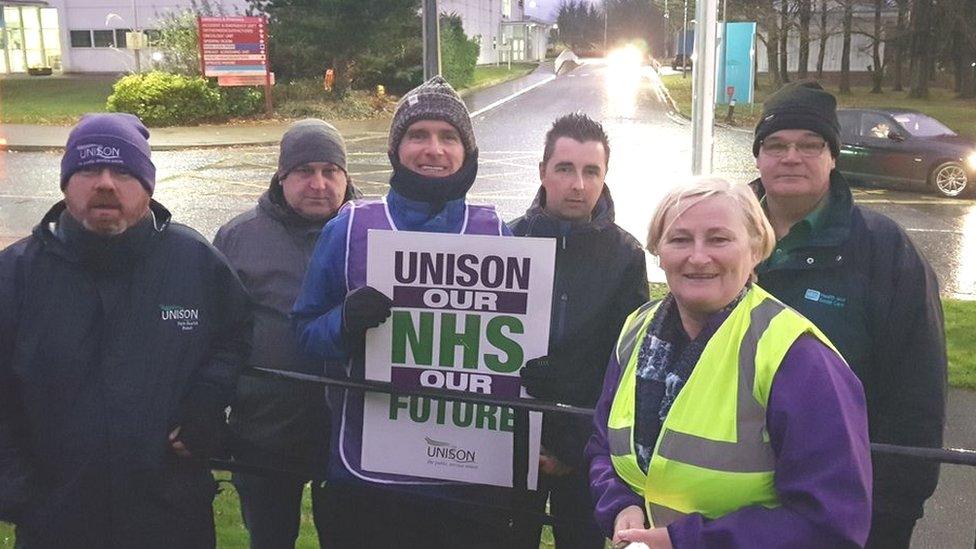
Unison members in the health service say they want better pay and increased staffing levels
Unison, which represents more than 6,500 registered nurses and 3,500 health care assistants, has called for "compromise and money on the table".
Healthcare workers who are members of the Unite trade union are due to join strike action with members of other unions on 18 December.
Who is taking decisions?
Northern Ireland has been without a devolved government since January 2017 when the power-sharing parties - the Democratic Unionist Party (DUP) and Sinn Féin - split after a bitter row.
Mr Smith said he would have more conversations with both the Northern Ireland Civil Service and the unions in the coming days.
"This area of health is a devolved matter so the decisions have to be taken by the NI Civil Service - they are working in difficult circumstances because Stormont's not running.
"But I am working with them to see if we can find a way through."
The Health and Social Care Board, the health service operator in Northern Ireland, said patient care and safety was of "paramount concern".
"We sincerely apologise for the distress and anxiety caused to all those patients, service users and family members who have been or may be affected by the industrial action," it added.
- Published2 December 2019
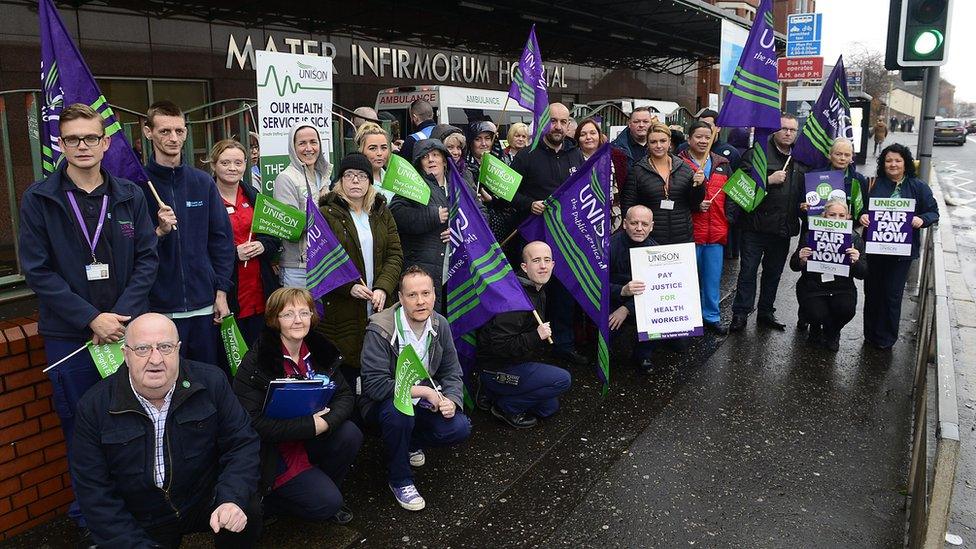
- Published28 November 2019
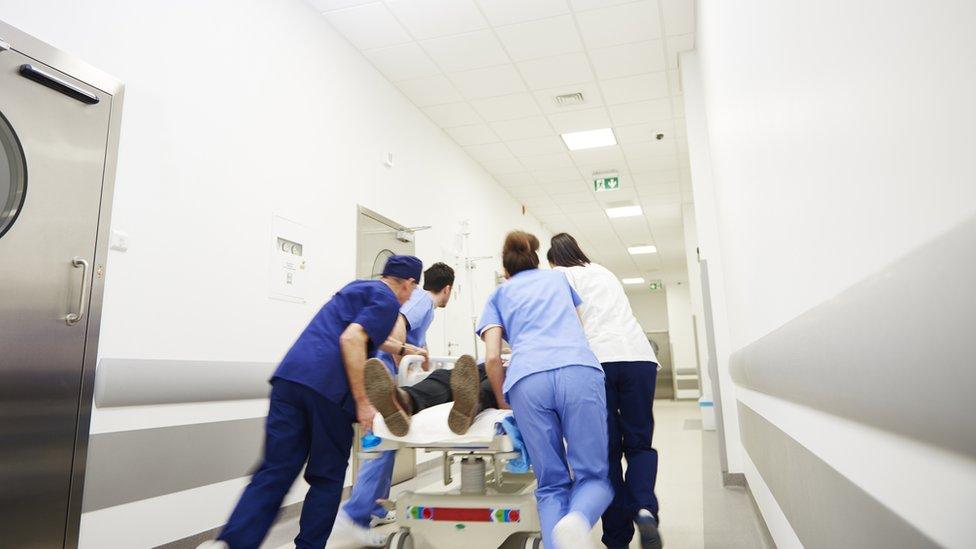
- Published25 November 2019
